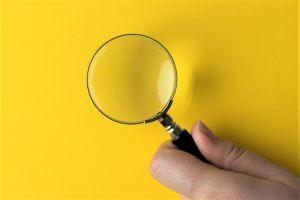Can Blockchain Be a Driver of Transparency in Governance?

Following the financial crisis of 2008, governments across the globe scrambled to find ways of improving transparency and efficiency, not only in financial services but across various areas of government. MiFID II (the Markets in Financial Instruments Directive) in Europe and the Dodd-Frank Act in the U.S. are perfect examples of efforts to ensure fairer, safer and more efficient markets, while facilitating greater transparency for participants.

In a world that increasingly demands more accountability, it is worth asking — can Distributed Ledger Technology (DLT), blockchain offer an avenue for greater transparency in governance?
A transparent, open ledger
Some have dubbed blockchain as the key for creating the “Internet 3.0”, a new dawn of internet which gives control back to users. Blockchain represents a new way of documenting information on the internet — a distributed database, where the holdings and transactions of each public address are open to viewing. Instead of recording transactions in a centralized database, blockchain offers a ledger, distributed to people in a network, that everyone on the network has a personal copy of. The ledger is verified as true, based on cryptography, and additions to the record cannot be altered. Given such transparency and security exists, the need for intermediaries as trusted custodians of data is negated. Blockchain is a platform for truth and trust.
The implications are astonishing, not just for the financial-services industry but also right across every avenue of society. Governments across the globe are actively exploring how this technology can improve the relationship between citizens and government. Kevin Werbach, Wharton professor of legal studies and business ethics said using blockchain makes sense for the government because much of what it does is actually record-keeping. “These [records] can be put on a blockchain to make them more secure and more accessible,” he said.
Looking at blockchain’s benefits through the ‘record-keeping’ prism shows just how much value can be added to government services. Tax returns, ID management, academic certification, driver’s licenses, property deeds and will & testaments are all held on centralized databases, but could benefit from the transparency of blockchain. Offering an unprecedented level of security and immutability, blockchain is not only beneficial to the consumer, in that they can be absolutely sure of the security of their information, and clearly document the allocation of public resources, but also to government. Such transparency helps to maintain the integrity of government by combating issues like unfair elections, voting fraud and a lack of integrity in financial reporting. Blockchain makes this a reality through accountability of information as a tool for assuring data is unfairly tampered with, added or removed.
The applications of developing such a system of integrity are far-reaching, and contributing to the shift to a more transparent and positive society. Several nations are actively exploring the technology across a wide range of industry verticals — in the U.S. alone, the federal government is expected to raise its blockchain spending to USD 123.5 million by 2022.
Secure, efficient services
Many government databases currently lie open to hacks, are expensive to maintain, highly administrative, and unnecessarily paper-driven. Blockchain can provide what MIT professor Brian Forde coined “responsive open data”. His vision is one where citizens can easily execute a transaction with the government, without being physically present, yet still have complete trust that the government verified that transaction. In order for such trust to exist in transactions involving sensitive personal information, databases need to exist without a single-point-of-failure risk — given the decentralized nature of blockchain, the network does not suffer from this setback, unlike centralized databases which continuously fall ill to hackers today.
Most of the technology to streamline government services exists today, but issues over security and transparency prevent these solutions from implementation. Blockchain can provide an infrastructure to store sensitive data such as health and biometric records, in a solely digital environment, to provide platforms for government-citizen interaction for the modern age.
Combating corruption
One area where blockchain has been touted as a potential benefit to government services is in aiding anti-corruption measures. The Organisation for Economic Co-operation and Development estimates that corruption adds up to 10% of the total cost of doing business globally.
____________________
____________________
In developing countries, corruption touches many areas — maintaining accurate databases of business and land registries is one which suffers extensively from this issue. Property records are often susceptible to vulnerabilities, as well as manipulation and mismanagement. Given how more than 70% of the world’s population lacks a “legally registered” title to their land (World Bank), there is great potential for DLT to create secure databases for these unrecorded deeds.
Currently, the Georgian government is registering land titles using blockchain, to ‘restore public trust in institutions and government agencies’. Aside from securing databases of land registries, blockchain is currently being implemented for tracking agricultural products, healthcare data and remittances to emerging economies — a secure alternative to traditional record-keeping, which can combat corruption.
Outlook
Perhaps we are now entering a new generation of security where governments, the main record keeper in society, can responsibly adapt blockchain data structures, making hacking and breaches significantly less prevalent. As the public demands increased transparency from their government, innovative solutions must be explored. My own Government recognizes the great potential of Distributed Ledger Technology, and we have made it our goal to position Gibraltar as a jurisdiction which facilitates innovation, whilst ensuring it continues to meet its regulatory and strategic objectives, through our DLT framework.
Blockchain’s promise of increased speed, security and transparency can aid public sector institutions, and the technology’s potential sheds light on why governments across the globe are actively exploring its use cases in public service. To reach full potential, blockchain must be backed by proactive regulation and a healthy level of collaboration between enterprise and government. If harnessed correctly, Blockchain can be an avenue for greater transparency in governance.



